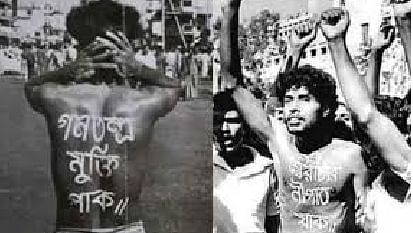The democratic situation in Bangladesh is declining as the country’s position in the liberal democracy index and electoral democracy index are weakening, Sweden-based research organisation Varieties of Democracy (V-Dem) in a report indicated.
V-Dem Institute of Gothenburg University has been measuring democracy around the world for the last five years.
The title of this year’s report is ‘State of the World: Autocratization Turns Viral’. The report was published on 11 March 2021.
According to the report, Bangladesh ranks 154th out of 179 countries in liberal democracy index. Bangladesh scores 0.1, which is less by 0.019 than the last year.
Bangladesh dropped in the electoral democracy index and ranks 138th by scoring 0.27. The score falls by 0.031.
In V-Dem report, Bangladesh is in the category of electoral autocracy. This means democracy was retreating. and a more autocratic rule was gradually taking its place. Bangladesh, however, was in the similar position in the previous report. Therefore, the position of this country remained unchanged.
Speaking to Prothom Alo, ruling Awami League joint general secretary Mahbubul Alam Hanif said the culture, socioeconomic condition and education in this region including Bangladesh are quite different than that of the western world. As a result, it is natural that there will be a difference in the outlook of democracy of the people of this region with the outlook of the people of the western world.
“Democracy is much more liberal in Bangladesh. The assessment the westerners make about Bangladesh is not correct,” Hanif claimed.
The report said the world’s largest democracy has turned into an electoral autocracy. India’s autocratization process has largely followed the typical pattern for countries in the “Third Wave” over the past ten years: a gradual deterioration where freedom of the media, academia, and civil society were curtailed first and to the greatest extent.
Narendra Modi led the Bharatiya Janata Party (BJP) to victory in India’s 2014 elections and most of the decline occurred following BJP’s victory and their promotion of a Hindu-nationalist agenda.
The report, however, said most democracies acted responsibly in the face of the pandemic but 9 democracies register major and 23 moderate violations of international norms.
It also said some 55 autocratic regimes engaged in major or moderate violations of international norms in response to the pandemic.
Restrictions on media freedom are most common by far – 2/3 of all countries imposed moderate or major ones. Almost 1/3 of nations (31pc) have (or had) emergency measures without a time limit. The final toll on democracy may turn out to be higher unless restrictions are eliminated immediately after the pandemic ends.
Poland takes a dubious “lead” as the country which declined the most during the last decade and three new nations join the major autocratizers: Benin, Bolivia, and Mauritius.
The report shows that autocratization typically follows a pattern. Ruling governments first attack the media and civil society and polarise societies by disrespecting opponents and spreading false information, then undermine elections.
We are seeing and feeling the democratic system in Bangladesh with our own eyes. We are observing that Bangladesh’s democratic system is declining continuously

